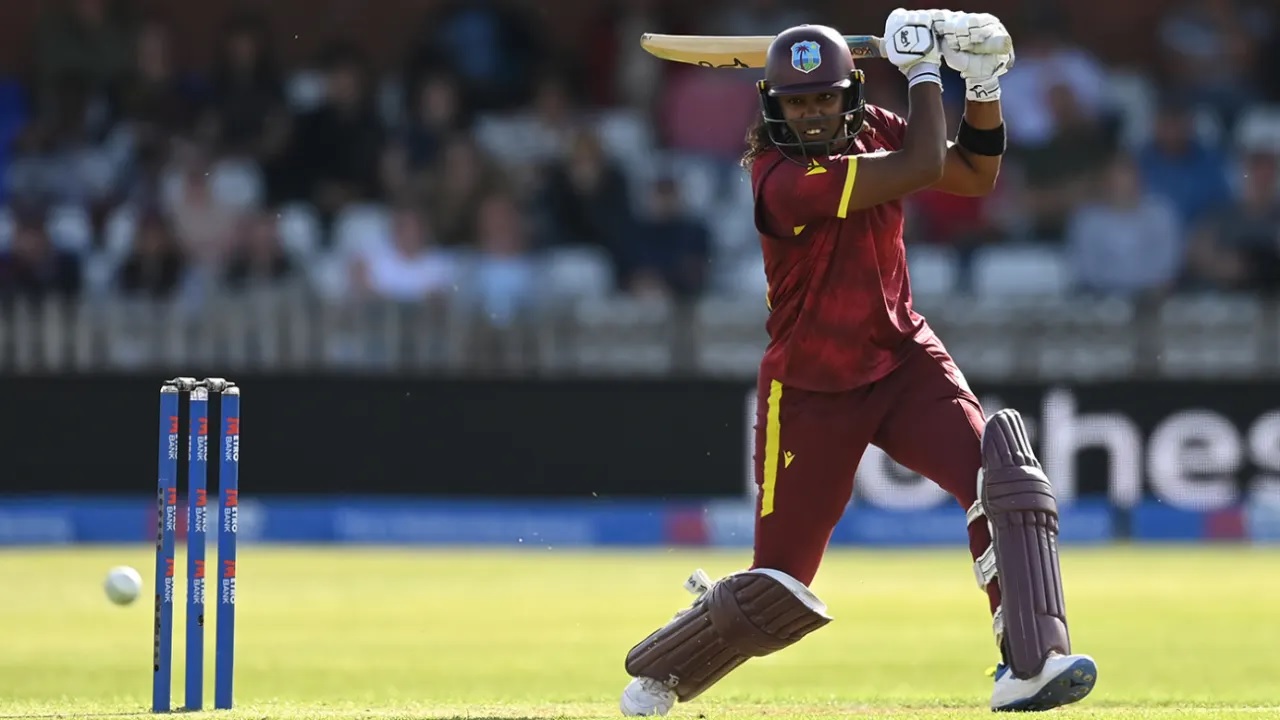Sports
Dep’s heroics at pole vault

Barrier Breakers
Throughout the course of human history man has been striving to break barriers which most people could not surmount eg: the four-minute mile and the sub ten second hundred metres. In Sri Lanka one such person who was to overcome several barriers, literally as well as metaphorically in the pole vault event was none other than Arthur Cletus Dep.
A.C. Dep was born on the 5th March 1917. His father was a teacher at St. Joseph’s College Colombo. Dep studied at St. Joseph’s during Rev. Fr. Le Goc’s era. While at St. Joseph’s he was over awed when G.S. Sivapragasam soared over the bar in the pole vault event at the school’s Inter House Meet. At school Dep came under the watchful eyes of Marcus Perera the college athletics master, who guided and nurtured him throughout his school career to rise to great heights. On a subsequent occasion when M.M. Thowfeek, the Ceylon Observer Sports Editor had asked Dep what fascinated him about the pole vault. He had replied that Marcus Perera’s going over the bar in the pole vault fascinated him.
His first attempt in the field of athletics was at the dual meet between the Wattala Bolton Wanderers (Mabole section) and the Scarlet Runners (Averiwatta section). He represented St. Joseph’s at the Ceylon Public Schools Championship in 1933 in which year he came second to his schoolmate Malcolm Spittle. Two years later he not only broke the Public Schools record but also broke the 10-foot barrier in the pole vault and raised it to 10 ft 2 inch. He beat the Public Schools record holder R. Peiris to third place. Malcolm Spittle also beat R. Peiris and came second. At the National Championships in 1936 he represented the University College and cleared the 11foot barrier the first to clear this height-the second barrier. The Ceylon record at that time was 10ft 10ins by L. A. Leembruggen who at this meet finished equal to L.D. Smith of the University. W.W.Thambimutthu came second.
In 1937 National Championships Dep was beaten into second place by Leembruggen. Both cleared 10ft 6 3/4ins but Leembruggen was placed first with fewer failures. But ten days later he cleared the 12foot barrier clearing 12 ft ½ an ins–the third barrier to add yet another Ceylon record to his credit. The next year representing the University, he won the National title again clearing 11ft 9 1/4ins beating R. Peiris and L.A. Leembruggen to second and third paces respectively. At the Quadrangular meet he won the event with a jump of 12ft. In1939 at the University Dep cleared 12ft71/2inc a new Ceylon record. In1940 he broke the third barrier by vaulting 12 ft 35/8 ins. at the National Championships. Dep improved the Pole Vault record to 12ft7 ½ ins in1937. It stood for 23 long years.
At the Trials for the Asian games in 1962, Dep was officiating in another event. No sooner he heard over the public address system that Vijitha Wijeyesekara had broken his record, unlike modern day athletes, the real sportsman he was, came to the pole-vaulting area and congratulated Vijitha. I was lucky to witness this event. Dep could have objected because when he was jumping there were no takeoff boxes nor saw dust pits or landing mattresses. Dep represented Ceylon at International Meets on three occasions. In 1938 he represented Ceylon at the Empire Games held in Sydney. He was unplaced and cleared only11ft6 ½ ins.
While on the way back home from Sydney Dep cleared 12ft 4ins at a Perth Meet. That was the best height cleared by a Ceylonese away from Ceylon. In 1940 when the First Indo Ceylon Dual Contest was held in Colombo. Dep won the pole vault event. V. Stanely de Livera won the sprint double, H.A. Perera won the high jump while Duncan White won the 400m and the 400m hurdles. The Second Indo-Ceylon contest was held in 1946 in Bangalore, India. Dep captained the Ceylon team. Dep won his pole vault event, while H.M.P. Perera won the 400m and Duncan White won the 400m hurdles. On both occasions the Ceylon teams won the two relays 4x100m and the 4x400m. He participated at the National Championships from 1936 till 1953, 17 long years except during 1941 due to an attack of typhoid, 1947 Election duty and in 1950 being in England. In 1953 he twisted his ankle and bade goodbye to competitive athletics. Arthur Dep entered the University College and obtained a B.A degree from the University of London. When he decided to join the Ceylon Police he entered to the rank of Assistant Superintendent of Police and rose to the position of Senior Deputy Inspector General of Police. His interest in History and Social Anthropology was shown in becoming a member of the Sri Lanka branch of the Royal Asiatic Society. His well researched monograph earned him recognition from the Egyptian Government and he was invited to be present at the Orabi Pasha Commemoration. In his historical research the monumental work in compiling the History of the Ceylon Police standout as of permanent value. He continued his interest in athletics officiating at major athletic events and was a Vice President of the Ceylon AAA. He was its representative at the Sri Lanka National Olympic Committee. Despite his busy schedule he never failed to come to officiate at the university meets.
Once when Thowfeek, the Observer Sports Editor asked what his cherished memory was, he showed a paper cutting of 1936 in which Sir Sydney Abrahams the Chief Justice of Ceylon at that time had said: “I would award pride of place to Dep’s record breaking pole jumps. The mechanics of this particular event are so difficult that it took long years in England before a native pole jumper cleared 11ft and Dep’s effort of 6 ins more would, I think I am safe in saying, have gained him a Blue at either Oxford or Cambridge any year since 1924.
Dep married Teckla Saparamadu. They have 5 children all doing well in life. Antoinette the eldest daughter entered the University of Ceylon Medical Faculty and qualified as specialist anesthetist. Marie was a Deputy Director of the Export Development Board. Priyasath was the highly respected Chief Justice of Sri Lanka. Srimath entered the University of Peradeniya and graduated as an Engineer, and currently resides in Australia. He held the Junior Under17 High Jump record. Linus entered the University of Colombo and read for a degree in Physics. He gained a First Class and obtained a scholarship to follow a Higher Degree in USA and he is engaged in Nuclear Physics research. Cletus Dep retired as a High Court Judge. The children excelled in sport. Antoinette represented the University of Colombo in netball while Marie represented in hockey and netball. Priyasath played cricket and rugger for the University of Colombo. Srimath played cricket for the Peradeniya University and represented in athletics. Cletus represented Royal College at athletics.
Dep was a highly respected officer not only by his colleagues but also by his subordinates and the public.
K.L.F. Wijedasa
(The writer is a former national record holder in the men’s 100m)
Latest News
Maharoof expects ‘some hard decisions’ after Sri Lanka’s T20 World Cup exit

“I’m going to put it very simple: it’s hurtful, it’s painful and it’s shameful,” Farveez Mahroof, the former Sri Lanka allrounder, said, pretty much summing up the mood among cricket fans in the island after their abject failure against New Zealand on Wednesday in Colombo. That it came after being bowled out for 95 by England and meant Sri Lanka’s T 20 World Cup 2026 was over just added to the sense of dejection.
“It’s not a pitch that you can play through the line, I get it. But the way some of the batters just gifted their wickets away, apart from Pathum Nissanka’s delivery [from Matt Henry], every other dismissal was a soft dismissal, giving the wickets away, just like the England game, where all ten were soft dismissals,” Maharoof said on ESPN Cricinfo TimeOut after the match. “Continuing the same trend into another game, a must-win game, shows Sri Lanka were not up to the mark with the bat.”
Nissanka has been Sri Lanka’s best batter in the tournament, and the main man in their win over Australia, when he slammed a 52-ball 100 not out. On Wednesday, Henry produced a peach to Nissanka first ball, and “whatever hopes that Sri Lanka had just vanished”.
At the T20 World Cup, which Sri Lanka came to after losing 3-0 to England in a series at home, they beat Oman and Ireland, teams ranked lower than them, and then Australia in the group stage, but since then, it has all been downhill. Zimbabwe, England and now New Zealand have beaten Sri Lanka, and the last two have come after poor batting performances.
“It’s becoming a bad habit to have. I have been doing this analysis for seven-eight years, I keep saying the same old thing: once in a while, a good game, and our hopes are high; all of a sudden, come crashing down to the earth,” Maharoof said, referring to the Australia game. “It’s not the first time. I just hope something down the line, this has to come to an end, some hard decisions have to be made.
“I think after the next game, before the next series starts, Sri Lanka’s selectors and the think tank should really think of the future, what are the capabilities of the players, who should stick and who should not stick, and move on. I expect probably in the next couple of weeks, some hard decisions are going to be made. If not, I will be very surprised.”
Sri Lanka end their campaign with a game against Pakistan, in Pallekele on February 28.
[Cricinfo]
Sports
Matthews’ century leads West Indies to six-wicket victory

Hayley Matthew’s tenth ODI century led West Indies to a six-wicket victory in the final match of the series against Sri Lanka and gave them their first points in the new Women’s Championship cycle.
Sri Lanka had already secured the series but couldn’t clinch a whitewash as Matthews dominated: she started the match by removing opposite number Chamari Athapaththu in the first over of the contest and then compiled an 118-ball hundred, which took West Indies most of the way in their chase.
“I felt like I was in a pretty good space batting-wise and probably just [in the] first game got pretty unlucky with how I got out and then in the second match gave my own hand away,” Matthews said. “So I certainly felt like I was in a space where I wasn’t exactly being too threatened at the crease and I knew I just had to lock in and try to take it a bit deeper.”
The home side was in early trouble in St George’s against a target of 218 with Qiana Joseph and Shemaine Campbelle falling to Malki Madara to leave West Indies 12 for 2. But after taking 12 balls to find her first boundary, Matthews did not look back as she took charge of the innings, adding 124 for the third wicket with Stefanie Taylor, who moved second on the all time run scorers list in ODIs.
Matthews’ fifty came from 48 balls before she slowed a little in the second half of her innings, but the asking rate was never a threat for West Indies. She did give a chance on 70 when Nilakshika Silva was unable to hold a return catch. The ball after reaching the century, though, Matthews picked out deep midwicket but a stand of 49 between Deandra Dottin and Chinelle Henry finished the job.
Following the early loss of Athapaththu, Sri Lanka’s innings was anchored by Harshitha Samarawickrema’s 70 off 112 balls. She added 78 for the third wicket with Vishmi Gunaratne, but the visitors struggled to lift the scoring rate in the latter stages as West Indies chipped away, with Karishma Ramharack removing Gunaratne and Samarawickrama in the space of four overs.
Brief scores:
West Indies Women 218 for 4 in 46 overs (Hayley Matthews 100, Stefanie Taylor 38, Chinelle Henry 32*; Malki Madara 2-33) beat Sri Lanka Women 217 for 7 in 50 overs (Hasini Perera 27, Harshitha Samarawickrama 70, Kavish Dilhari 45*, Hayley Matthews 2-33, Karishma Ramharack 2-39) by six wickets
[Cricinfo]
Sports
Trinity take first innings honours against S. Thomas’

Pulisha Thilakarathne top scored with 89 runs and held the top order batting together as Trinity scored first innings points and took major honours in the Ranil Abeynayake Memorial Trophy cricket encounter at BRC ground on Wednesday.
Trinity took a first innings lead of over 50 runs and declared their innings with two wickets in hand to find Thomians doing better in the second essay.
Jayden Amaraweera was in the forefront of the Thomian revival in the second innings as he scored his second half century of the match. Aaron Kodituwakku missed a second half century by five runs.
For Trinity, Mahendra Abeysinghe and Dinal Fernando were the others to make contributions with over 40 runs, while Aadham Hilmy made 32.
Scores:
S. Thomas’ 189 all out in 77.4 overs
(Aaron Kodituwakku 72, Jaden Amaraweera 50, Shanil Perera 37n.o.; Kanika Anthony 5/66, Dinal Fernando 3/34) and 182 for 5 in 53 overs (Jaden Amarawera 68, Aaron Kodituwakku 45;
Chaniru Senarathne 2/44)
Trinity 54 for 1 overnight 246 for 8 decl. in 58.2 overs (Pulisha Thilakarathne 89, Mahendra Abeysinghe 44, Dinal Fernando 45, Adam Hilmy 32; Abheeth Paranawidana 4/95, Gimhan Mendis 3/41) (RF)
-

 Features4 days ago
Features4 days agoWhy does the state threaten Its people with yet another anti-terror law?
-

 Features4 days ago
Features4 days agoReconciliation, Mood of the Nation and the NPP Government
-

 Features4 days ago
Features4 days agoVictor Melder turns 90: Railwayman and bibliophile extraordinary
-

 Features3 days ago
Features3 days agoLOVEABLE BUT LETHAL: When four-legged stars remind us of a silent killer
-

 Features4 days ago
Features4 days agoVictor, the Friend of the Foreign Press
-

 Latest News6 days ago
Latest News6 days agoNew Zealand meet familiar opponents Pakistan at spin-friendly Premadasa
-

 Latest News6 days ago
Latest News6 days agoTariffs ruling is major blow to Trump’s second-term agenda
-

 Latest News6 days ago
Latest News6 days agoECB push back at Pakistan ‘shadow-ban’ reports ahead of Hundred auction













